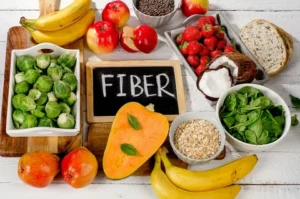The Ultimate Guide to the Vegan Diet: Benefits, Challenges, and How to Start
Adopting a vegan diet has become one of the most popular lifestyle changes globally, attracting attention for its health benefits, environmental impact, and ethical principles. Whether you are considering going vegan for health, compassion for animals, or reducing your ecological footprint, this guide will provide everything you need to know about starting and sustaining a vegan lifestyle.
What is a Vegan Diet?
A vegan diet excludes all animal products, including meat, dairy, eggs, and honey. Vegans rely entirely on plant-based foods such as fruits, vegetables, grains, nuts, seeds, and legumes. Unlike vegetarians who may still consume dairy or eggs, vegans eliminate all forms of animal-derived ingredients from their diet.
Why Choose a Vegan Diet?
People adopt veganism for various reasons, which can be broadly classified into three categories:
1. Health Benefits
A vegan diet can improve overall health by reducing the risk of chronic diseases such as heart disease, type 2 diabetes, and certain cancers. Plant-based foods are rich in nutrients, fiber, and antioxidants while being low in saturated fats and cholesterol.
2. Ethical Considerations
Many people go vegan to prevent animal cruelty. The industrial farming of animals involves practices that harm and exploit animals. Veganism offers a way to align dietary choices with ethical values.
3. Environmental Impact
Animal agriculture is a major contributor to greenhouse gas emissions, deforestation, and water pollution. Choosing a plant-based diet reduces your carbon footprint and conserves natural resources.
Health Benefits of a Vegan Diet
A properly planned vegan diet offers numerous health advantages:
1. Improved Heart Health
Studies show that vegans tend to have lower blood pressure and cholesterol levels, which can significantly reduce the risk of heart disease.
2. Weight Management
A vegan diet is often associated with easier weight management. Plant-based foods are generally lower in calories but high in nutrients, making it easier to achieve and maintain a healthy weight.
3. Better Digestive Health
The high fiber content in fruits, vegetables, and whole grains promotes gut health and prevents constipation.
4. Reduced Risk of Chronic Diseases
Research indicates that vegans have a lower risk of developing type 2 diabetes and certain types of cancer due to the abundance of antioxidants and phytochemicals in their diet.
5. Boosted Energy Levels
By eliminating heavy, processed foods and focusing on nutrient-rich options, many people report increased energy and improved mood.
Challenges of Following a Vegan Diet
Transitioning to a vegan lifestyle can be challenging, especially for beginners. Here are some common obstacles and how to overcome them:
1. Nutritional Deficiencies
Without careful planning, a vegan diet can lack essential nutrients like vitamin B12, iron, calcium, omega-3 fatty acids, and protein. Consider fortified foods or supplements to fill these gaps.
2. Social Situations
Dining out or attending events can be tricky as vegan options are not always available. Inform the host in advance or bring your own vegan-friendly dish.
3. Cravings for Animal-Based Foods
Cravings are natural during the initial phase. Substitute meat, dairy, and eggs with plant-based alternatives like tofu, tempeh, and almond milk.
4. Cost Concerns
Some people perceive veganism as expensive. However, focusing on whole, unprocessed foods like beans, rice, and seasonal produce can make it affordable.
5. Knowledge Gap
Lack of knowledge about recipes, ingredients, and meal planning can hinder success. Investing time in learning and experimenting can make the transition smoother.
How to Start a Vegan Diet
Embarking on a vegan diet can seem overwhelming, but following these steps will ease the transition:
1. Educate Yourself
Learn about the nutritional requirements and how to meet them with plant-based foods. Familiarize yourself with common vegan ingredients and substitutes.
2. Start Gradually
If you find it daunting to go vegan overnight, try a step-by-step approach. Start by eliminating one animal product at a time, like switching from cow’s milk to plant-based milk.
3. Plan Your Meals
Meal planning ensures you have a balanced diet and prevents the temptation of non-vegan options. Prepare a weekly menu featuring various plant-based dishes.
4. Stock Your Pantry
Fill your kitchen with vegan staples such as lentils, quinoa, nuts, seeds, and nutritional yeast. This makes it easier to prepare meals without relying on animal products.
5. Experiment with Recipes
Try new recipes and cuisines to keep your meals exciting. There are countless vegan cookbooks and online resources for inspiration.
6. Join a Community
Connecting with other vegans can provide support and encouragement. Join local groups, online forums, or social media communities.
Vegan Substitutes for Common Foods
Transitioning to a vegan diet does not mean giving up your favorite dishes. Many plant-based alternatives can replace traditional ingredients:
- Milk: Almond, soy, oat, or coconut milk
- Meat: Tofu, tempeh, jackfruit, or seitan
- Cheese: Cashew cheese, nutritional yeast, or vegan cheese brands
- Eggs: Flaxseed meal, chia seeds, or commercial egg replacers
- Butter: Coconut oil or vegan margarine
- Honey: Agave syrup, maple syrup, or date syrup
Vegan Diet for Beginners: Sample Meal Plan
Here is a simple vegan meal plan to kickstart your journey:
- Breakfast: Smoothie bowl with banana, berries, almond milk, and chia seeds
- Snack: Hummus with carrot and cucumber sticks
- Lunch: Buddha bowl with quinoa, roasted vegetables, chickpeas, and tahini dressing
- Snack: Handful of mixed nuts and dried fruits
- Dinner: Lentil curry with brown rice and steamed greens
Tips for Long-Term Success on a Vegan Diet
- Stay Informed: Keep up with the latest research and updates in the vegan community.
- Be Creative: Experiment with different cuisines and cooking techniques.
- Listen to Your Body: Adjust your diet based on how you feel and consult a nutritionist if needed.
- Be Patient: Give yourself time to adapt and learn.
- Advocate for Veganism: Share your experiences to inspire others.
Conclusion
A vegan diet offers incredible benefits for your health, the planet, and animal welfare. While the transition may come with challenges, proper planning and a willingness to learn can make the journey enjoyable and fulfilling. By incorporating diverse, nutrient-rich foods and staying mindful of your goals, you can thrive on a plant-based lifestyle. Start your vegan journey today and experience the positive impact on your life and the world around you.



